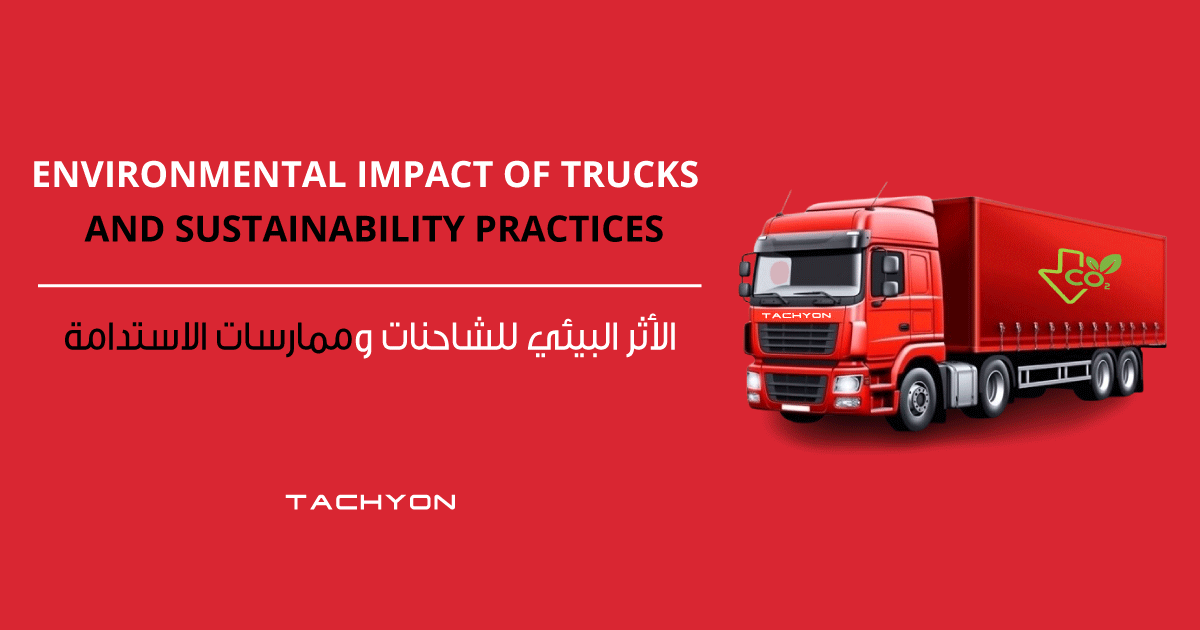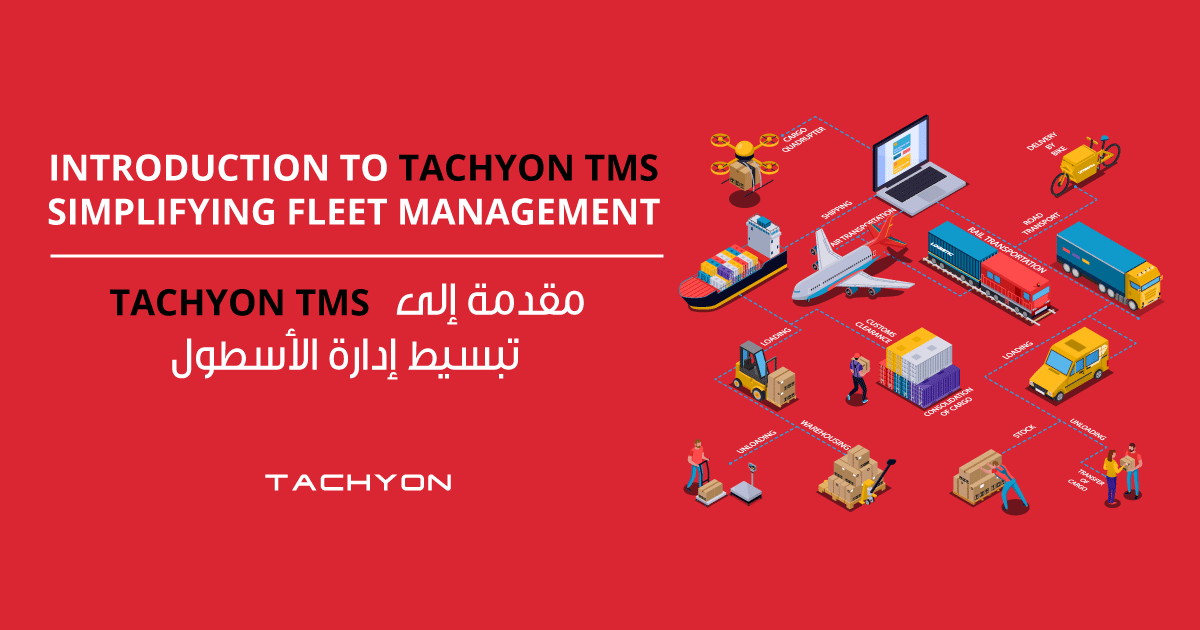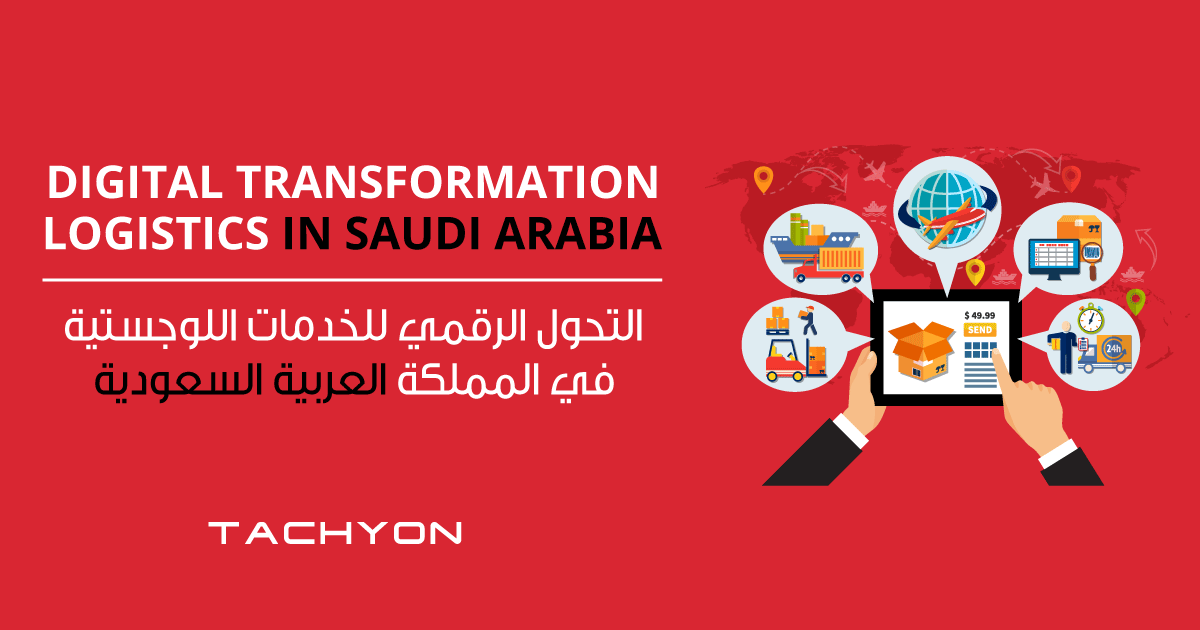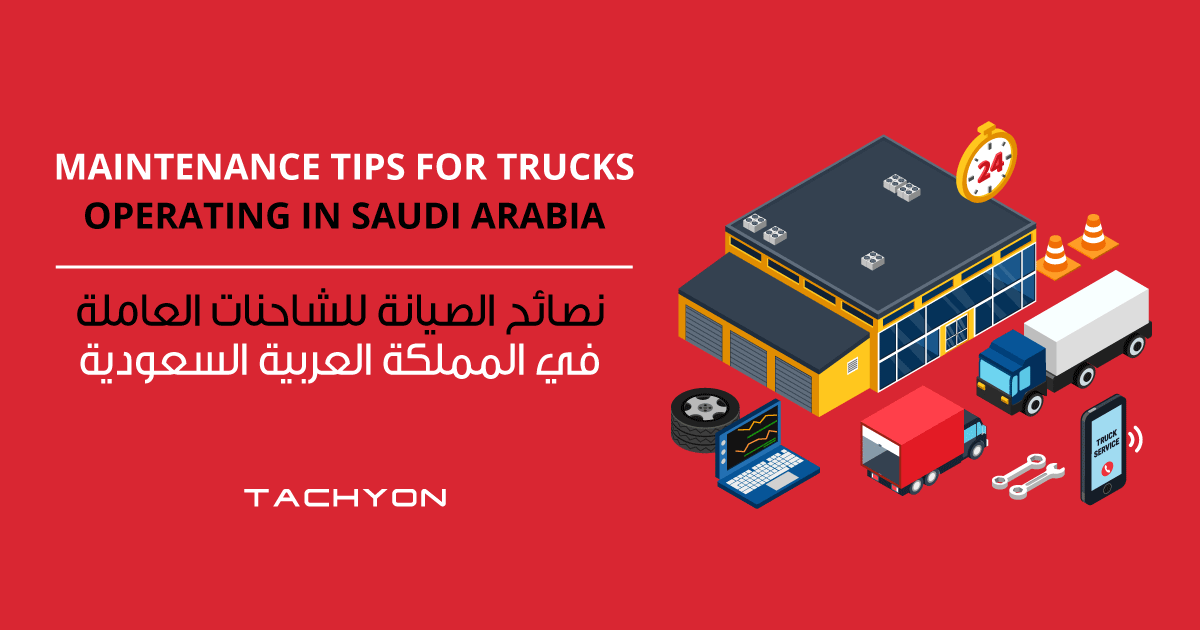Tachyon news
Blog
Environmental impact of trucks and sustainability practices

The trucking industry is involved in logistics operations. Trucks are the primary source of transportation for goods. We see heavy-duty trucks and cargo vehicles on Saudi Arabian roads all the time. They impact the environment. The combustion of fuel and the emission of fuel release greenhouse gases that create air pollution and climate change. The trucking industry is the backbone of the logistics industry. The transportation system cannot be performed without trucks. Then, we will discuss how to control the environmental impacts caused by the trucks. Effective strategies and measures can prevent pollution in the environment. Sustainable, structurally designed trucks can support eco-friendly practices. The use of the latest technologies and energy-efficient resources can reduce fuel consumption and its effects on the environment. In this blog article, we will describe some environmental impacts caused by the trucks and the required sustainability practices. Let’s get started.
Environmental impacts of the trucking industry
The shipping and transportation industries produce considerable amounts of carbon dioxide in the environment. Road freight accounted for about 7% of global energy-related CO2 emissions in 2019. Furthermore, research conducted by the European Environment Agency (EEA) found that CO2 emissions from heavy-duty trucks operating in the 27 EU member states increased by 5.5%. Over the past few years, this percentage has been gradually rising due to rising transport volumes.
Particularly in urban locations and near major thoroughfares, vehicles emit harmful pollutants such as carbon dioxide, sulfur dioxide, nitrogen oxide, and particulates that have a significant impact on air quality.
In addition, the industry has significant and crucial effects on the environment. It is one of the largest consumers of fossil fuels and an important source of noise pollution. In order to keep running, more road infrastructure needs to be constructed. Natural habitats are destroyed, and the truck’s fuel consumes more ground trucks. This suggests that transportation businesses should look into innovative ways to improve their sustainable operations. These businesses may employ a variety of techniques to lessen their influence on the environment. The following are some typical reasons why trucks have an adverse effect on the environment.
Air Pollution
Trucks are adding pollution to the air. Heavy-duty trucks and trailer trucks create more air pollution. The problem of smog in populated cities is getting worse due to heavy traffic. Air pollution lowers air quality. It contains particles of carbon monoxide, nitrogen oxide, and particulate matter.
Water Pollution
Trucks carry sensitive liquids and chemicals, as well as hazardous materials, which can cause spills and contamination. As a result, water pollution is increasing and damaging water resources. Truck-contained materials pollute usable water resources, which is harmful to us.
Effect on Ecosystems
The trucking industry also damages ecosystems, disturbing wildlife and natural habitats. Road and traffic pollution affects the ecosystem, making healthy living difficult. Too much dependence on fossil fuel consumption is the cause of this environmental change.
Greenhouse gas emissions
Carbon dioxide is the most common greenhouse gas released from truck fossil fuel consumption. It is increasing global warming and changing the planet’s climate. Methane gas is released from the burning of fossil fuels, which is involved in increasing environmental pollution.
Sustainable Practices in the Trucking Industry
Due to its enormous negative ecological impact, the trucking sector has been at the forefront of discussions about how to make sustainability better. The phrase “sustainable transport” refers to a framework for examining present industry-wide economic operations with the aim of reducing waste, contamination, and consumption. The term “sustainable development” refers to initiatives made to assess and raise socioeconomic as well as ecological standards. By implementing strategies like converting their fleet automobiles to run on alternative fuels, maximizing route effectiveness using fleet management software, and working with shipping companies and carriers to develop more smart supply chains, green transportation firms are leading the sector. Sustainable transportation searches for answers to the societal and financial difficulties that the trucking sector faces, in addition to ecological issues. Societal responsibility (CSR) and environmental social governance (ESG) have become more well-known as the demand for sustainability in the commercial transportation sector has grown. Thriving companies recognize that these approaches can contribute to positive change in addition to increasing profitability.
Eco-friendly technology
The trucking industry and truck operators should adopt eco-friendly technologies in their logistics services and management systems. Electric and hybrid trucks and autonomous vehicles can change the measures.
Optimizing route planning
Optimizing route planning and logistics services is necessary to address the challenges of infrastructure roads. Optimizing route planning for logistics services can also reduce the effects of fuel consumption on the environment.
Use of Alternative Fuels
There is a need to use energy-efficient resources to reduce fuel consumption and its effects on the environment. Alternative sources to replace traditional fuel should be used. Transport and logistics companies are using alternative fuels like LNG, CNG, and electric trucks.
Recent Sustainability Efforts in the Trucking Industry
In Saudi Arabia, much work is being done to lower the detrimental effects that the trucking sector has on society and the environment. These initiatives aim to find more effective, environmentally friendly, and efficient ways to do business while still satisfying customer demand. The transition from conventional fossil fuels to alternative fuels and electric trucks may be the most significant of them. In addition to being a major contributor to the global decline in the condition of the air, the refining of fossil fuels produces enormous amounts of waste and pollution of the land and water. Eco-friendly transport businesses are improving sustainability by establishing fleets of alternative fuel trucks.
Another step is optimizing route planning with fleet administration software and telemetry data. Trucking businesses may cut down on time wasted in traffic and hauling empty trailers by analyzing data and creating more efficient routes for their fleet trucks. Furthermore, by highlighting smooth acceleration and deceleration, examining data from individual drivers might support the promotion of environmentally beneficial driving behaviors.
Trucking businesses are attempting to enhance sustainability in many ways, such as modernizing and maintaining their current equipment. For the best possible fuel economy and pollution control, regular vehicle maintenance is essential. This includes the rate of inflation, engine repairs, and greenhouse gas system checks. Additionally, adding catalytic removal systems and diesel particle filters to previous models can help cut emissions.
Sustainability’s Future in the Trucking Industry
If future sustainability is maintained, revolutionary shifts may occur in the trucking business. Many automakers are actively developing electric trucks with longer battery lives and higher towing capacities, and every new generation of alternative fuel cars gets better and better. Another promising technique for ecologically friendly transportation is hydrogen energy storage technology. A large number of freight transporters using these fuel sources would significantly lower carbon dioxide emissions and enhance air quality.
Another factor that will likely influence sustainability in the future is self-driving, which can enhance initiatives to optimize fuel-efficient driving methods. Environmentally friendly facilities such as hydrogen fuel cells and electric vehicle charging stations, as well as the use of recyclable and environmentally friendly elements in the production of automobiles.
When considering sustainability’s future, regulatory assistance is a crucial but often overlooked component. Governments offer incentives to encourage the use of electric and low-emission vehicles and continue to impose tougher pollution regulations. In addition, they are crucial to the development of the sustainable infrastructure discussed in the preceding sentence. Government rules are propelling the trucking sector toward a more promising future in several ways.
Conclusion
To sum up the whole discussion, we can say that trucks are the basic source of transportation for goods. They operate on roads all the time, affecting the atmosphere. We should follow a strategy that reduces the effects of fuel consumption on the environment. We should adopt technology and modern electric trucks for sustainable practices. Tachyon is the leading logistics service in Saudi Arabia, offering the best logistics services to help transporters and shippers. It promotes technology-based logistics services and management to encourage eco-friendly practices for a better environment. All the logistics stakeholders should be involved in sustainable strategies as a social responsibility.
Frequently Asked Questions
How can we reduce the environmental impacts caused by trucks?
Using alternative fuels like LNG, CNG, and electrical trucks can reduce fuel consumption’s environmental effects.
How do trucks cause negative environmental impacts?
The emissions of greenhouse gases from trucks cause air and water pollution, which is becoming a cause of global warming.
Can Technologies in the trucking industry control pollution?
Yes, the use of autonomous vehicles and electric trucks and technologies can control environmental pollution.
Does Tachyon help transporters?
Yes, Tachyon is the best digital logistics platform in Saudi Arabia. Its services offer the best logistics features and the latest technologies for transporters and shippers. To foster eco-friendly activities and a better environment, it supports technology-based logistics services and management.



